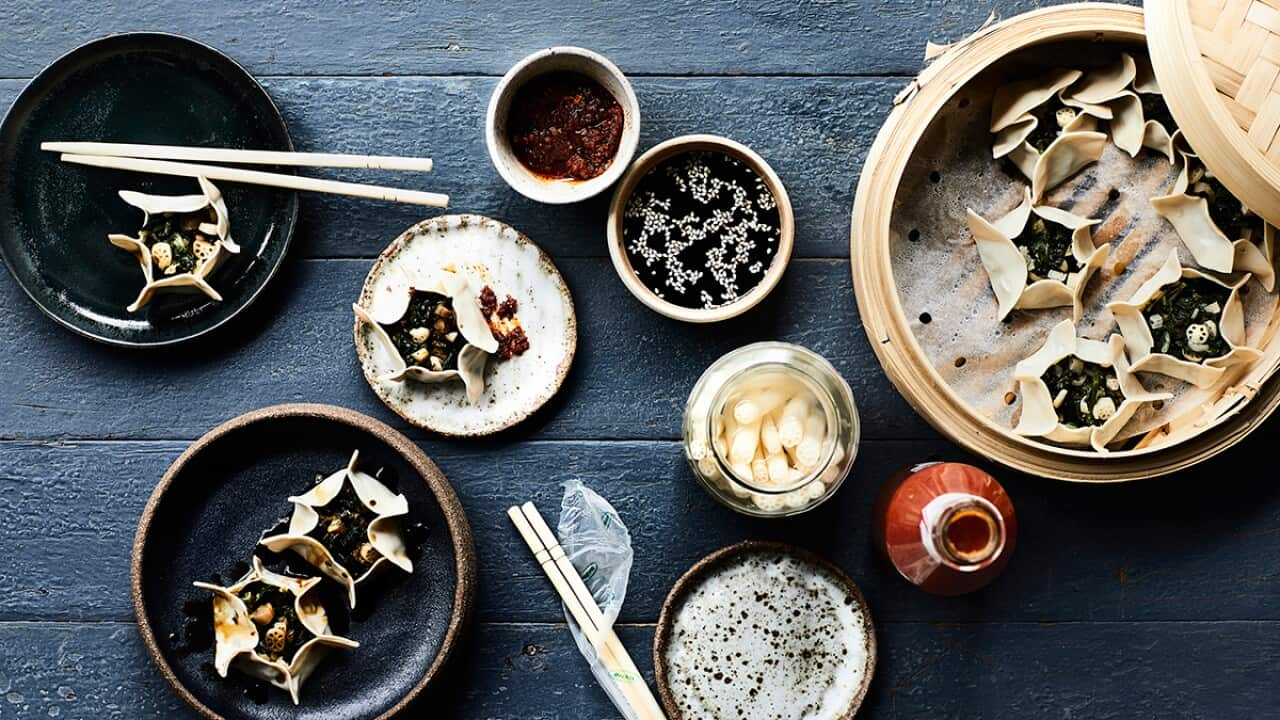In our recent pursuit to become smarter, faster, a new pharmaceutical market has been born for a type of supplement called ‘nootropics’.
Also known as ‘smart drugs’, nootropic supplements promise to enhance your cognition function and supercharge your memory. Take a nootropic pill regularly, marketing claims suggest, and you’ll be able to learn new things, feel more motivated, have better memory recall and boosted concentration rates.
Yet the sale of nootropic supplements raises one vital question: do we really need to be taking pills to boost our daily brain performance?
But, for the general population, I believe food should be our main source of our nutritional needs, for all situations including cognitive performance.
Melanie McGrice, a spokesperson for the , tells SBS that we don’t need to turn to pills for brainpower. We can boost our memory, concentration and mental performance by eating the right foods: nootropic foods.
“Of course, there are always exceptions to the rule: people who are unable to meet their nutritional requirements because they’ve had gastrointestinal surgery, have a food allergy or intolerance, a specific illness or are pregnant,” says McGrice, an Accredited Practising Dietitian.
“But, for the general population, I believe food should be our main source of our nutritional needs, for all situations including cognitive performance.”
Here are nootropic foods – ‘smart foods’ – that McGrice recommends we eat to maximise our brain’s performance.
1. Caffeine
You’ve probably already experienced how a cup of coffee or tea has boosted your mental alertness. But research also suggests that caffeine may be able to improve various memory types.
A study conducted by researchers at shows that caffeine enhances certain memories for at least 24 hours after it is consumed.
The research, , concluded that caffeine can enhance our brain’s ability to consolidate long-term memories.
also found caffeine may be able to improve the working memory (part of the short-term memory that deals with immediate conscious and linguistic processing) of older adults.
But let’s not forget that too much caffeine can cause anxiety in some people – your sensitivity levels are personal – and you can consume too much of a good thing.
2. Nuts
Research from shows that nuts can help with our brainwave function, learning, cognition and sleep.
The scientists found that some nuts like pistachios and peanuts (which are actually legumes but included in the study) stimulated some brain frequencies, required for learning, perception, information processing and function, more than others.
McGrice advises people to have one serve a day, equal to around 30 grams.
“Nuts won’t give you a quick fix or a sense of mental alertness in the way that, say, caffeine may, but it will boost your mental performance if you keep including them in your diet on a regular basis.”
3. Enjoy a low-GI diet and eat often
Sticking to a diet that includes small, regular low-GI meals could help to enhance your brain function, McGrice says. “I’ve seen it so often in clients that people who don’t eat small, regular meals struggle to think clearly. Carbohydrates are a primary fuel source for our brain. Low GI sources give our brain a constant source of energy.”

Egg and bacon jam breakfast pizzas. (Getty) Source: SBS Food
4. Eat leafy greens, avos and eggs
Leafy greens, including spinach and kale, avocados and eggs are a great source of lutein – a nutrient, which research suggests, can help to keep you cognitively fit.
, found that middle-aged participants with higher levels of lutein attained through diet had neural responses that were more on par with younger individuals than with their peers.
READ MORE

Silverbeet and spinach dumplings
5. Berries
“Berries are one of the richest sources of antioxidants around and have great anti-inflammation properties which can help reduce inflammation in our brain,” McGrice says.
“We are supposed to have two serves of fruit a day. One punnet of strawberries is considered a serve. So I’d recommend having a punnet of berries three-to-four times a week, as part of your regular fruit intake.”
6. Water
“When we are dehydrated, we are more likely not to be able to think clearly,” McGrice.
“It’s recommended that you drink around two litres of water a day, but how much you need may also vary on your weight, and level of physical activity.”
READ MORE

Is it possible to not like water?
7. Oily fish
McGrice explains that the long chain omega 3s in oily fish may improve learning and memory, and reduce inflammation in the brain.
“[Long chain omega 3s] are important for the functioning of adult brains and the brains of babies as they are developing in the womb during pregnancy,” she says.
“There is also a fair bit of research around the benefits of omega 3 for brain function, linking it to a decreased risk of Alzheimer’s disease, depression and other mental health conditions.”
McGrice advises that people eat two-to-three serves of oily fish, like salmon, a week.
“However, eating one piece of fish once also isn’t going to give you a mental edge in that minute,” she says.
“You also can’t eat a terrible diet of pizza and chips and have fish three times a week or nuts or any other food that helps cognitive performance and expect the benefits.
“But by eating these foods on a regular basis, as part of an overall healthy diet, you should have a mental edge and see an improvement in cognitive performance.”











